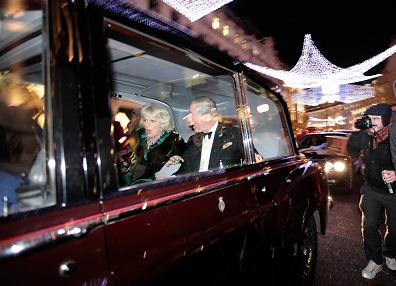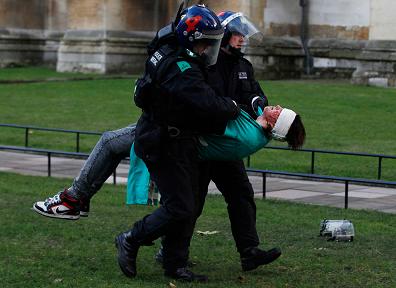Imagine if newspapers consistently stereotyped any other group this way:
The portrayal of teenage boys as “yobs” in the media has made the boys wary of other teenagers, according to new research.
Figures show more than half of the stories about teenage boys in national and regional newspapers in the past year (4,374 out of 8,629) were about crime. The word most commonly used to describe them was “yobs” (591 times), followed by “thugs” (254 times), “sick” (119 times) and “feral” (96 times).
Other terms often used included “hoodie”, “louts”, “heartless”, “evil” “frightening”, “scum”, “monsters”, “inhuman” and “threatening”.
The research – commissioned by Women in Journalism – showed the best chance a teenager had of receiving sympathetic coverage was if they died.
“We found some news coverage where teen boys were described in glowing terms – ‘model student’, ‘angel’, ‘altar boy’ or ‘every mother’s perfect son’,” the research concluded, “but sadly these were reserved for teenage boys who met a violent and untimely death.”
At the same time a survey of nearly 1,000 teenage boys found 85 per cent believed newspapers portray them in a bad light.
Media demonisation of youths is not new of course; it’s an old and venerable tradition with British tabloids. Mods/rockers, punks, hip-hop gangstas: every new subculture has been demonised in turn. But there’s also our media created obsession with safety: we cocoon our kids until they hit puberyt and then suddenly they’re all purse snatching knife criming yobbos: two sides of the same coin. Fear the other kids, keep our own safe at home. I’d hate to be a teenager right now, to be harassed and hassled everywhere I went just for being a teenager, having to be controlled all the time.
And teenagers are nearly powerless in our society as well. There is no Teenage Defense League after all, no real political consciousness of teenagers as an interest group. Most of them can’t even vote, so there’s nothing in it for politicians to cater for them. As the article goes on to mention:
The research found that – for all the coverage of teenage issues – the boys’ voices themselves were rarely heard in newspapers. Fewer than one in 10 articles about young people actually quoted young people or included their perspectives in the debate.
Fiona Bawden, the WiJ committee member who presented the research at the British Library, said: “When a photo of a group of perfectly ordinary lads standing around wearing hooded tops has become visual shorthand for urban menace, or even the breakdown of society, it’s clear teenage boys have a serious image problem.
It’s not surprising that teenagers have no voice in the newspapers: they don’t buy the papers, the papers’ advertisers are not interested in their business and therefore they are safe to be demonised. The market in action.

